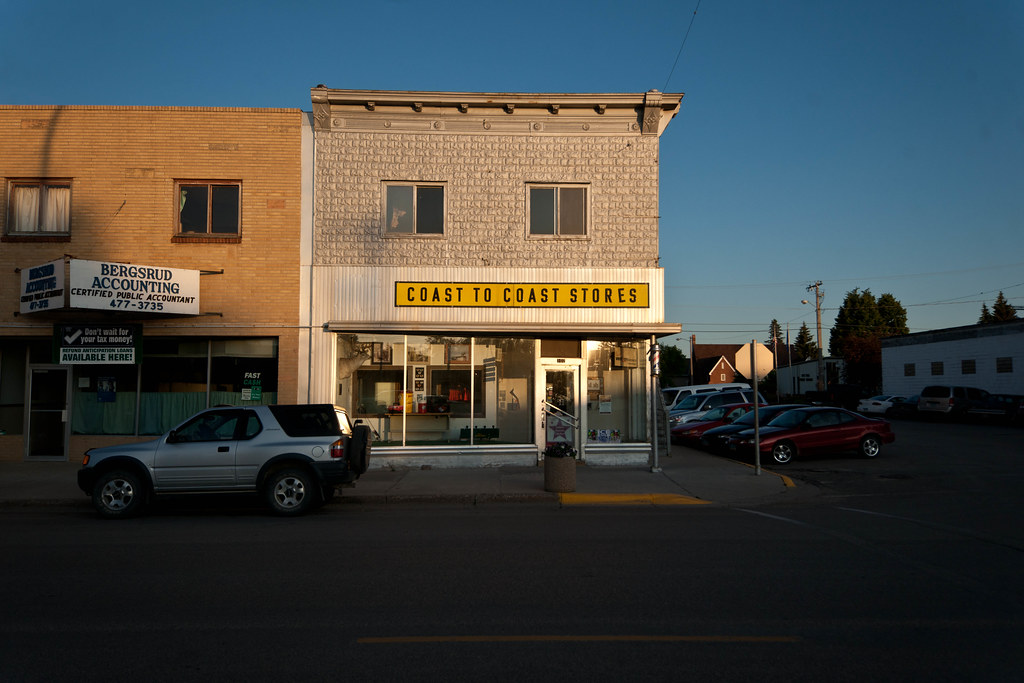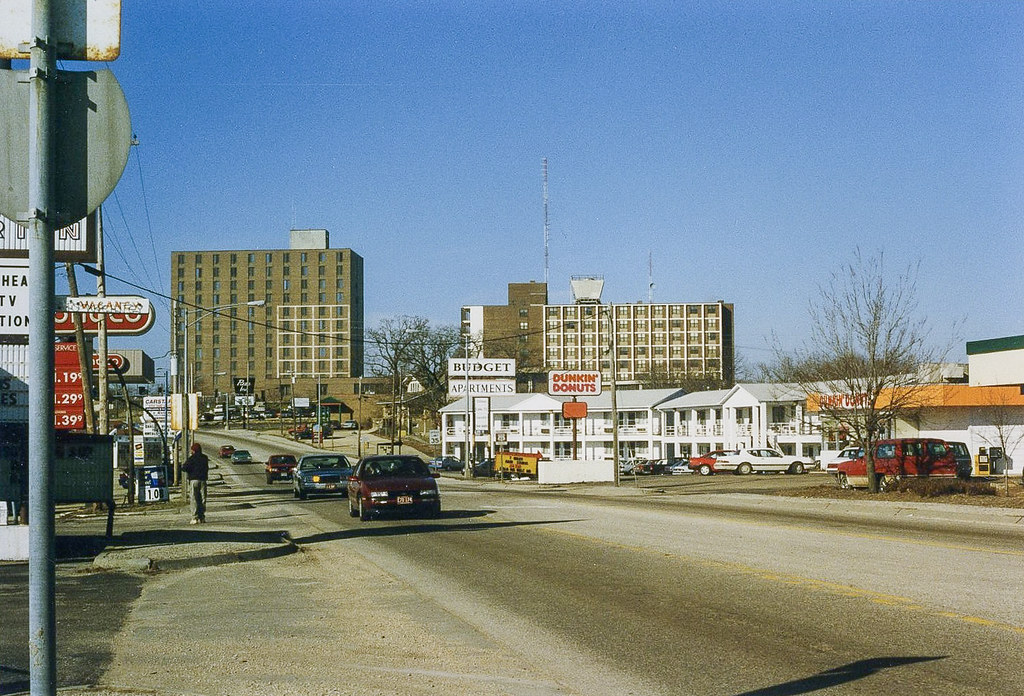Editor’s Note… Well folks, after 1,373 articles, it finally happened. I repeated a topic. I’d forgotten that I posted a similar article back in 2014. This should make for an interesting compare and contrast, though. I did include a couple of extra Rolla locations this time. I’m surprised it didn’t happen sooner, actually.
Once again my compulsive need to review Twelve Mile Circle access logs inspired an article. I spotted a little dot in North Dakota, way up by the Canadian border. It stood all alone so I wondered why someone from such an obscure spot might come to 12MC. The user probably arrived for a reason similar to anyone else although now it piqued my curiosity. I checked and saw the viewer read about the smallest tribe of Native Americans in the United States. Well, welcome Rolla user. That gave me a nice excuse to explore your town along with others of a similar name.
Rolla, North Dakota

I most appreciated that Rolla (map) could be found in Rolette County. References indicated that the Rolla name probably derived from the county name. Probably? How could there be any doubt? Unfortunately I couldn’t find a primary source so that forced me to apply the same qualifier.
Rolette though derived from Joseph Rolette, a colorful 19th Century fur trader and politician from an area of Minnesota that later became part of North Dakota. He once hid for several days to prevent the governor from signing a bill to move Minnesota’s capital away from St. Paul. Apparently he sought refuge in a nearby brothel where he drank, played cards and, well, I digress. That escapade didn’t disqualify him from having a county and city named in his honor after his death. Maybe it helped.
However, Rolla did NOT become the county seat of government for Rolette. That honor went to Belcourt, a town of two thousand residents, about double the size of Rolla. I couldn’t find much of historical importance in Rolla although I wouldn’t recommend breaking in to someone’s home there either. They carry guns.
It seemed that residents pronounced it Roll-a. Perhaps my 12MC visitor will return some day and confirm that.
Rolla, Kansas

Now why did Rolla sound so familiar? I’d seen a different Rolla before. In Kansas. This happened during my 2013 Dust Bowl adventure. I concentrated on a tight area around the Oklahoma Panhandle. It included the southwestern corner of Kansas. In that faraway nook, in Morton County specifically, stood a little town of Rolla (map). Barely four hundred people lived there along the open plains within the Cimarron National Grassland.
What scant evidence existed seemed to say that Rolla’s founders named if for Sir Walter Raleigh, and pronounced it Raw-la. That seemed far-fetched. However, many people living in North Carolina’s capital city of Raleigh pronounced it that way in their southern drawl. Transplants could have carried the name and its pronunciation with them as they settled the plains. I couldn’t find direct evidence to back that up for this particular Rolla although it seemed to be within the realm of possibility.
Rolla, Missouri

The big Rolla didn’t appear in North Dakota or Kansas, it appeared in Missouri. This Rolla (map) served a population of twenty thousand! It also included a significant university, the Missouri University of Science and Technology. Residents pronounced it Raw-la like in Kansas, and supposedly for a similar reason. It also had a more definitive connection back to North Carolina too.
“Rolla was officially surveyed, laid out and named in 1858. Bishop wanted to call it Phelps Center, since his house was the center of the county. John Webber preferred the name ‘Hardscrabble’ for the obvious reasons. George Coppedge, another original settler, and formerly of North Carolina, favored ‘Raleigh’ after his hometown. The others agreed with Coppedge on the condition that it shouldn’t have ‘that silly spelling, but should be spelled Rolla’.”
Significant military activity took place here during the Civil War because of Rolla’s southern sympathies. The Union army occupied it just to make sure a strategic railroad terminal didn’t fall into the hands of Confederate sympathizers.
Rolla, British Columbia
I didn’t expect a Rolla to show-up in Canada, and yet one appeared (map) in British Columbia near the Alberta border. It seemed like an odd coincidence until I found an entry for Rolla on the Discover The Peace Country website.
“The Lea Miller family was the first settlers to arrive in the area in 1912 that were originally from Rolla, Missouri in the USA. This new area then started being referred to as Rolla. The Millers opened a post office and Rolla was officially named in 1914.”
Thus, if I followed the logic correctly, Sir Walter Raleigh lent his name to Raleigh, North Carolina where it transferred to Rolla, Missouri, and finally to Rolla, British Columbia. I’d seen longer name chains before (e.g., Richmond) although this one still stood out. The couple of hundred-or-so people there pronounced it similarly to its Missouri namesake.
Rolla, Anantapur, India
The Rolla in India seemed to be completely coincidental. I couldn’t find a connection to any of the others. I didn’t know how to pronounce it either. Information seemed scarce. I did find some basic information on its Wikipedia page. However, the page offered little else and failed to cite reliable sources. Someone could have made it up for all I knew.
Yet, this Rolla supposedly dwarfed even the similarly-named Missouri town. Nearly thirty-five thousand people lived there. It certainly demonstrated the drawback of Wikipedia, where a town of that size barely earned any mention because of its location.
I didn’t want to be culturally insensitive. Primarily, I wouldn’t ordinarily describe someone’s tradition as “strange.” However, a local news report documented a “Strange Tradition in Rolla Village Anantapuram” (their words not mine) in a YouTube video I found. If the locals thought it qualified as strange then I didn’t feel so bad about calling it strange too.
The video showed some kind of ceremony where a row of people laid down on the ground and others stuck their feet on them as musicians played. It showed the same scene of a toddler getting a foot on her neck like a dozen times. Maybe it served as some kind of blessing. I couldn’t grasp any context because the reporter spoke something other than English. Unfortunately the video no longer appears on YouTube so I removed the link.
Nonetheless, it let me add another Indian pushpin to my Complete Index Map, and that made me happy.

Leave a Reply